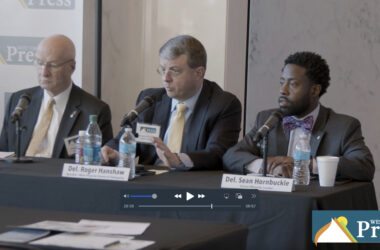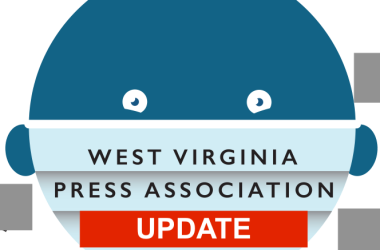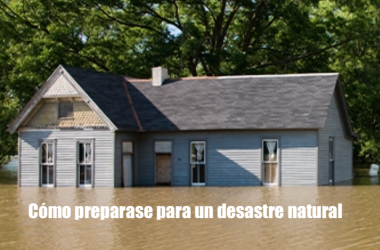By ERIC EYRE
Charleston Gazette-Mail
CHARLESTON, W.Va. — Two of the nation’s largest drug wholesalers have agreed to pay a combined $36 million to settle lawsuits that allege the companies benefited from West Virginia’s problem with prescription drug abuse.
Cardinal Health, the largest supplier of drugs in West Virginia, will pay the state $20 million. AmerisourceBergen, the state’s third-largest drug distributor, agreed to pay $16 million.
It’s believed to be the largest pharmaceutical settlement in state history.
The lawsuits had dragged on for more than four and a half years in Boone County Circuit Court and spanned the terms of two attorneys general.
The settlement money will go to drug treatment programs that help West Virginians addicted to opioid drugs such as heroin and prescription painkillers. The money will be kept in a special account at the State Auditor’s office.
“We’ve taken steps to combat drug abuse in West Virginia with distributors, prescribers and pharmacists, and the money from this settlement will help us expand those efforts with additional treatment and long-term recovery options,” Gov. Earl Ray Tomblin said.
Cardinal Health and AmerisourceBergen denied any wrongdoing. The distributors transport drugs from manufacturers to pharmacies.
On Dec. 28, Boone Circuit Judge Will Thompson issued an order, notifying the court that Cardinal Health and AmerisourceBergen had reached settlement with the state. The judge directed the companies and the government to disclose the terms this week.
In addition to the settlement payments, Cardinal Health and AmerisourceBergen agreed to promptly alert state authorities when they see suspicious drug orders from pharmacies. Cardinal Health has been faxing reports about suspicious orders since June 2012, after then-Attorney General Darrell McGraw sued the company. AmerisourceBergen did not submit any reports. The state Board of Pharmacy has acknowledged that it never enforced the reporting law.
The reports also will go to the Attorney General’s Office and the West Virginia State Police.
“We believe that the best possible way to manage this issue is to encourage drug distributor customers, like pharmacists and physicians who work directly with patients, to prescribe and order pain medications responsibly and appropriately,” said Gabe Weissman, an AmerisourceBergen spokesman. “Simultaneously, we will continue to do our part to provide the safe and efficient distribution network that ensures product availability for the treatments that preserve or enhance quality of life for patients with legitimate needs, while working with all partners to limit and prevent abuse.”
Monday’s announcement follows a Gazette-Mail investigative report, which found that drug wholesalers shipped 780 million hydrocodone and oxycodone pills to the state in just six years, a period when 1,728 West Virginians fatally overdosed on those two drugs.
Cardinal Health and AmerisourceBergen combined to ship nearly 40 percent of all hydrocodone and oxycodone pills to West Virginia, according to the newspaper’s analysis of U.S. Drug Enforcement Administration data. Several counties saw significant spikes in shipments while drug overdose deaths were climbing.
For instance, Cardinal Health’s sales of hydrocodone to Cabell and Logan counties increased six-fold between 2007 and 2010, and doubled in Kanawha County in just one year. AmerisourceBergen’s oxycodone sales in Greenbrier County nearly quadrupled over six years, DEA records show.
“Obviously, they had to know, with a state this size, and that many pills coming in, that something wasn’t right,” Tomblin said Monday.
In 2012, McGraw filed lawsuits against Cardinal Health, AmerisourceBergen and a dozen smaller drug distributors for their role in a drug supply chain that includes doctors who write prescriptions for nonmedical purposes and “pill mill” pharmacies that dispense excessive numbers of painkillers. Attorney General Patrick Morrisey inherited the case upon taking office in January 2013.
The West Virginia Department of Health and Human Resources, along with the Department of Military Affairs and Public Safety, later joined the lawsuit as plaintiffs.
Previous settlements, with nine smaller wholesalers, have netted the state more than $11 million.
Last January, Morrisey’s office sued McKesson Corp., the second-leading prescription opioid shipper to West Virginia. That case remains stuck in federal court, with no settlement expected anytime soon.
The state’s settlement with Cardinal Health and AmerisourceBergen won’t end all litigation the companies face in West Virginia. In late December, the McDowell County Commission filed suit against those firms and McKesson, alleging the wholesalers contributed to the county’s opioid epidemic by shipping far too many pain pills there.
And last week, Kanawha County Commission President Kent Carper said the county and the city of Charleston intend to sue the drug wholesalers. Other counties also are expected to file lawsuits aimed at recouping costs associated with prescription drug abuse.
West Virginia has the highest drug overdose death rate in the nation.
“It’s been devastating,” said Tomblin, whose brother was convicted in federal court in 2014 of selling prescription painkillers. “The amount of money, and the grief and loss of life that these pills have cost the people of West Virginia, it’s hard to put a dollar figure on it. The treatment is going to have to go on for years.”
The Gazette-Mail’s investigation, “Painkiller Profiteers,” revealed that a disproportionate number of pain pills was shipped to Southern West Virginia, a region that also shouldered the highest rate of overdose deaths caused by prescription opioids between 2007 and 2012. The largest shipments often went to independent drugstores in small towns.
Cardinal Health has said that its hydrocodone and oxycodone sales make up only a small fraction — about 7 percent — of its total doses of prescription drugs shipped to West Virginia. Hydrocodone is sold under brand names like Lortab and Vicodin. Oxycodone is known better under its OxyContin brand name.
“While the company denies the state’s allegations, Cardinal Health recognizes that the epidemic of prescription drug abuse is a multifaceted problem driven by addiction and demand,” the drug wholesaler said in a news release.
Outside lawyers representing the state are expected to collect attorney fees equaling a third of the settlement amount.
Tomblin said he talked with Morrisey last week, asking that the attorney general put his portion of the settlement funds into the special account at the Auditor’s Office to ensure the money goes to drug treatment and prevention programs. The DHHR and the Department of Military Affairs and Public Safety are putting their settlement money in the account.
“I would hope he would put his share of the settlement into the trust fund, also,” Tomblin said. “He said he would check with his people and let us know, but he hasn’t let us know yet.”
A Morrisey spokesman did not respond to a request for comment.
Morrisey’s and Tomblin’s offices issued a joint news release Monday. As part of the settlement, the drug distributors had a say in the wording of the release, which notes that the companies shipped drugs only to licensed pharmacies. The wholesalers have defended their actions by using the same language in their own news releases.
See more from the Charleston Gazette-Mail



